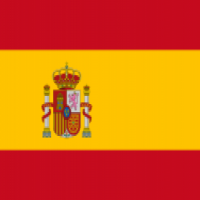Summary:
A Spanish University research group focuses on organometallic catalysts, its involvement in reaction mechanisms, and the identification of critical parameters offers its expertise. Its system can be applied to organo-catalyzed reactions, and the study of kinetic and spectroscopic data can optimizes the reaction parameters in order to maximize the yield/purity of the product.
Partners (industrial or academic) are sought for a commercial, technical or research cooperation agreement.
Description:
The research group belong to a Spanish centre of higher education, on which, nearly 25,000 students enroll each year and more than 2,600 lecturers are employed, and nearly 1,000 people work with administration tasks. This university offers 29 doctoral programs, 13 of them are interuniversity programs.
The organization manages around 180 research projects per year funded through international and national competitive public R&D (research and development) grants. Approximately 500 contracts and agreements, aimed at the transfer of knowledge and technology, reach an average of over 15,000,000 euros per year. Moreover, university researchers are involved in almost 250 projects and contracts managed by other institutions. In particular, the research group has previous experience in the management of several competitive R&D projects, financed by international and national public organizations.
The research group is focused on the study of transition metal catalyzed reactions. These are widespread synthetic methodologies which, however, have to be carefully adapted to each new set of reagents. There is a large set of experimental parameters that have to be stablished to perform successfully the reactions. The usual approach is to translate the experimental conditions that have been described in the scientific or patent literature for similar chemical structures. Since the miss-adjusting of one single parameter jeopardizes the catalytic cycle, this strategy very often heads to poor performance of the synthetic reaction.
The research group has the instrumentation and the skills to in situ monitor the reaction by “operando spectroscopy”, analyze the data by reaction progress kinetics analysis (RPKA) methodology, and define the critical conditions that have to be improved to benefit the synthetic result. The analysis of kinetic parameters and the use of microkinetics allows to determine which are the concentrations, solvents and temperature required to reach the highest efficiency of the catalyst reaction, the optimization of the chemical yield or the optimization of the yield versus time, solvents or reagents consumed.
The group is interested in collaborating under research cooperation agreement with research groups working in multi-catalytic processes in organic synthesis.
Fine chemicals industries, including pharmacological, agrochemicals, food chemistry, parfums, dyes, additives, and others are sought as partners under commercial agreement with technical assistance and/or technical cooperation agreement.
Type (e.g. company, R&D institution…), field of industry and Role of Partner Sought:
The research group is interested in contact with universities or research and development institutes working in multi-catalytic processes in organic synthesis, with the aim of extend the scope of the methodology to different catalytic systems and also by applying the study to systems that can be monitored by different instrumentation, such as micro-polarimetry, luminescence, etc. The collaboration must be established under a research cooperation agreement to participate in international cooperation research programs (H2020, Horizon Europe, Eurostars, Eureka, COSME, LIFE, etc.) in the field of highly energy efficient and decarbonized buildings.
The group is also interested in collaborating with chemical industries working on fine chemicals in order to develop the industrial application of the working methodology. For this, it would be desirable to collaborate in the supervision of Industrial Doctoral Theses aimed at the study of catalytic systems of interest to the industry through the RPKA methodology and the determination of optimal working conditions.
The collaboration, under commercial agreement with technical assistance and/or technical cooperation agreement with fine chemicals industries, including pharmacological, agrochemicals, food chemistry, parfums, dyes, additives, and others are also desirable.
Stage of Development:
Under development/lab tested
IPR Status:
Secret Know-how
External code:
TOES20200505001








